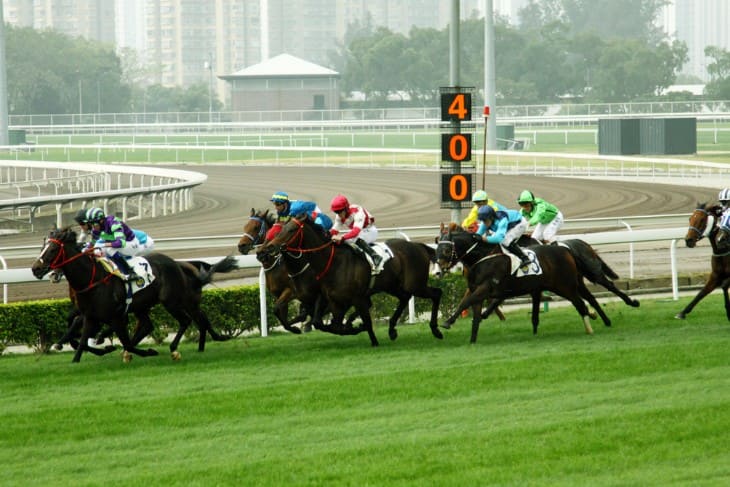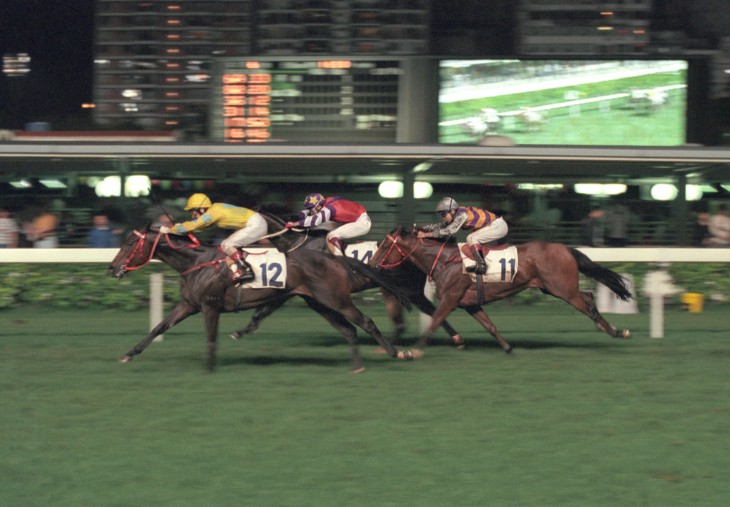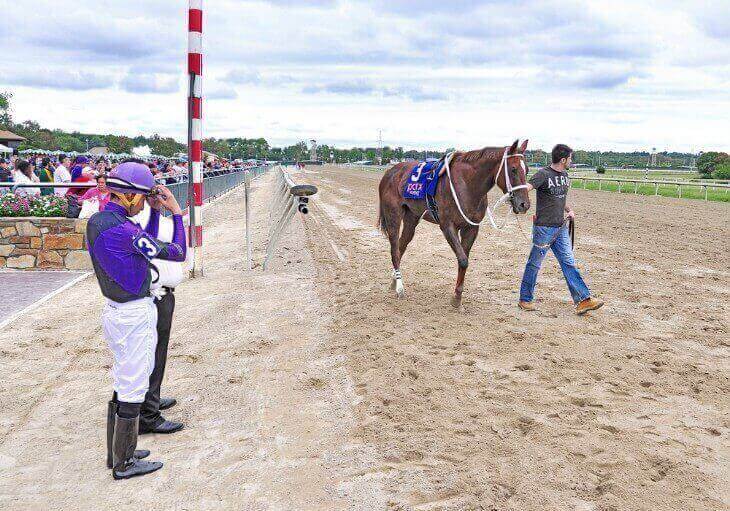- The Appointment and Training of Horse Racing Stewards
- The Responsibilities and Duties of a Horse Racing Steward
- Maintaining Integrity in Horse Racing: Stewards' Role in Regulation and Enforcement
- The Importance of Stewards in Race Day Operations
- Video Review and Technology in Stewarding Decisions
- Resolving Disputes on the Racecourse: Stewards as Arbitrators
- Collaboration and Communication: Stewards, Jockeys, and Trainers
- Conclusion
Horse racing's deep traditions and storied history demand the utmost integrity from all involved. Safeguarding this integrity are the sport's stewards - impartial authorities tasked with upholding fair play, enforcing regulations, and resolving conflicts on the racetrack. This article examines the vital responsibilities of horse racing stewards in preserving the sport's sanctity and honour.
The origins of horse racing stewards date back centuries when unbiased overseers were needed to maintain order during races. While their role initially centred on settling disputes between riders, owners and spectators, it has evolved significantly alongside the professionalisation of the sport. Today's stewards are appointed officials who act as guardians of racing's rules, horse welfare, and the vested interests of all stakeholders.
Stewards are the eyes and ears of the racetrack. Their ever-watchful gaze scrutinises each event, ensuring strict adherence to regulations. Any breach, abuse or unethical conduct is swiftly identified and addressed through their decisive interventions. As such, stewards personify the sport's commitment to fairness, transparency and equine protection.
- Stewards undergo comprehensive training in rules, racecourse operations, horse welfare, and modern video technology to ensure they are prepared for all scenarios.
- Their ability to remain calm and impartial under intense pressure is critically assessed during the stringent hiring process.
- Stewards act as ambassadors of integrity, promoting horse racing's positive reputation among fans and detractors alike.
The Appointment and Training of Horse Racing Stewards
The appointment of stewards is a meticulous process overseen by racing governing bodies and designed to identify exceptional candidates. A diverse pool of former jockeys, trainers, legal experts and knowledgeable fans are assessed through rigorous written, oral and situational examinations that probe their understanding of regulations, horse welfare standards and strategic decision-making abilities.
Successful applicants are those who demonstrate a judicious temperament, ability to remain composed amid emotional turmoil, and an overarching commitment to safeguarding racing's integrity above all else. Their objectivity, fairness and fortitude under fire are essential prerequisites for this demanding role as guardians of the sport.
Once selected, new stewards undergo a comprehensive training regimen to master their multifaceted responsibilities. Interactive classroom sessions build their regulatory knowledge, while practical scenarios hone their real-time decision-making capabilities. They must become adept at swiftly analysing video evidence, weighing mitigating factors and applying rules with consistency and impartiality.
- Psychology training helps stewards develop skills in conflict resolution and defusing emotionally-charged disputes between riders, trainers and owners.
- They gain expertise in gauging adequate disciplinary actions for rule infractions and matching penalties to the severity of offences.
- Stewarding schools utilise cutting-edge simulators to recreate challenging race incidents and pressure-test decision responses.
The Responsibilities and Duties of a Horse Racing Steward
On racedays, stewards are among the first officials to arrive at the track, conducting meticulous inspections to certify the racecourse, facilities and equipment meet mandated safety specifications. They collaborate closely with the clerk of scales, horse identifiers, veterinarians and other course authorities to verify all race-readiness protocols have been satisfied prior to starter's orders.
With races underway, stewards monitor proceedings from strategic vantage points using video assistance and communication links with the patrol judges and outriders. Their prime directive is to identify any conduct breaches, dangerous riding, interference or use of illegal equipment that could jeopardise fair competition, horse welfare or public safety.
When incidents occur, stewards immediately convene to review video replays and collate comprehensive eyewitness accounts. Their collective expertise across equine disciplines allows reasoned assessments before rulings on disciplinary actions such as disqualifications, suspensions or fines. Stewarding decisions are binding and enforceable across all jurisdictions.
- Stewards conduct pre- and post-race inspections to check horses for any injuries and ensure tack/equipment compliance with regulations.
- They arbitrate protests and disputes formally lodged by connections related to race officiating, placings or equine conduct.
- Enforcing anti-doping/anti-corruption laws to preserve racing's integrity is a critical stewarding responsibility.

Maintaining Integrity in Horse Racing: Stewards' Role in Regulation and Enforcement
Preserving integrity is paramount in racing and underpins stakeholder confidence across the sport. Stewards are integrity's staunchest champions, upholding regulations through stringent monitoring, enforcement of rules violations, and being ever-vigilant against attempts to circumvent procedures or gain illicit competitive advantages.
Their uncompromising presence acts as a powerful deterrent against misconduct, complemented by the capacity to impose harsh sanctions on any offenders. From jockeys and trainers to grooms and officials, all are accountable to stewards' disciplinary reach if found guilty of improprieties or ethical lapses that besmirch racing's image.
Together with anti-doping agencies, stewards play a leading role in safeguarding equine welfare through rigorous pre- and post-race testing protocols to detect prohibited substances. Their meticulous oversight, allied with sophisticated forensic screening capabilities, aims to eradicate performance-enhancing drug use that endangers horses and compromises competition fairness.
- Stewards conduct stable inspections, reviewing treatment records and medication logs to verify compliance with veterinary standards.
- They investigate any allegations of raceday doping offences through inquiries, collection of evidence and interviews with involved parties.
- During high-profile events, stewards implement elevated scrutiny and security measures to mitigate integrity risks.
The Importance of Stewards in Race Day Operations
Racedays are electrifying occasions where the thunder of hooves and the roar of the crowds generate an unparalleled atmosphere. Amidst this exhilarating milieu, stewards personify the calm, unwavering voice of authority that ensures all proceedings unfold according to protocol while safeguarding human and equine welfare.
Their raceday roles commence hours before the first race, with stewards undertaking minute inspections to validate track conditions, facility preparedness and rule compliance. No detail is too small as they scrutinise surfaces, rails, starting gates and other safety-critical infrastructure to identify and rectify potential hazards before horses and riders arrive.
Once racing commences, stewards are ubiquitous yet unobtrusive presences, strategically positioned to comprehensively monitor all activity through the aids of video, communications and reporting systems. Their ability to rapidly identify and respond to any irregularity is critical to preventing escalations that could jeopardise fairness, integrity or safety.
- Stewards chair the pre-race meetings where riders are briefed on course conditions, regulations and specific instructions for each event.
- They conduct filmed interviews with riders after races to document any reports of interference, rule breaches or equine distress.
- Public interaction is key, with stewards acting as accessible points of contact to answer queries and explain any rulings or outcomes.
Video Review and Technology in Stewarding Decisions
The pioneering use of video technology has revolutionised stewards' abilities to oversee racing with enhanced scrutiny and precision. Modern, multi-angle video replay systems provide comprehensive visual coverage, allowing stewards to meticulously review incidents from every perspective unhindered by real-time limitations.
Coupled with digitised resources like rules databases and judicial archives, stewards can access a wealth of information to guide consistent and well-informed decisions based on clear evidence rather than conjecture. The transparency afforded by being able to display video replays of contentious incidents has further boosted racing's accountability.
While technology has empowered stewards, it has not superseded the primacy of human expertise and discernment. Video evidence must be interpreted through an experiential lens, with stewards applying contextual understanding of riding tactics, horse behaviours, racetrack characteristics and other nuances that algorithms cannot replicate.
- Miniature camera systems are providing never-before-seen perspectives from jockeys' vantage points during races.
- Satellite monitoring combined with GPS data allows stewards to remotely track races and inspect any potential breaches reported.
- Equine biometric sensors could potentially provide stewards supplementary physiological data to assess welfare during and after races.

Resolving Disputes on the Racecourse: Stewards as Arbitrators
The ultra-competitive environment of horse racing means disputes are inevitable, whether between riders over on-track conduct, or owners/trainers contesting equine irregularities or official rulings. Stewards play a pivotal role in resolving these conflicts impartially and expeditiously while upholding the sport's ethos.
Their investigations are exhaustive - gathering evidence, interviewing parties, studying video recordings, and weighing mitigating factors before rendering judgments. Principles of due process, transparency and procedural fairness underpin all stewarding deliberations to ensure sanctioned parties' rights are protected.
While striving for amicable resolutions, stewards must also wield disciplinary powers robustly when rules are breached. Punitive actions like suspensions or disqualifications serve as deterrents, reaffirming that accountability and integrity take precedence over individualistic interests that could undermine racing's greater good.
- Jockey disputes over tactics like interference, strikes or excessive use of whips/spurs must be swiftly adjudicated post-race.
- Inquiries into equine conduct issues involving savaging, refusing to race or reversing lead at starts are complex multi-party investigations.
- Owners or trainer protests disputing placings,weights or eligibility criteria activation can instigate lengthy proceedings.
Collaboration and Communication: Stewards, Jockeys, and Trainers
Stewarding requires deft coordination among a diverse array of human and equine participants. Effective communication between stewards, jockeys, trainers, officials and event staff is vital for fostering a cohesive understanding of roles, responsibilities and race-day choreography.
Before races, stewards conduct briefings with riders detailing any specific regulations, course instructions or concerns like adverse weather that could impact safety. These open dialogues allow jockeys to clarify doubts, suggest potential issues, and mentally prepare for anticipated race scenarios.
Throughout race meetings, stewards remain in constant communication with patrol judges and outriders through radio links, receiving real-time updates on potential incidents or developing situations. This interconnected reporting network empowers swift, informed decision-making that maintains races' orderly progressions.
- Stewards confer with trainers/vets pre-race about horses' behavioural traits, injury histories or therapeutic regimes that warrant monitoring.
- Rider/trainer inputs are welcomed on irregularities like conflicting weights, tack issues or potential starting gate malfunctions.
- Post-race debriefs allow connections to explain actions, report welfare concerns, or contest stewarding decisions amicably.
Conclusion
In summary, the role of horse racing stewards is multifaceted and indispensable to upholding the sport's integrity, safety standards, and ethical principles. Their expertise, impartiality, and unwavering commitment to enforcing regulations make them the guardians of racing's heritage and its future trajectory.








